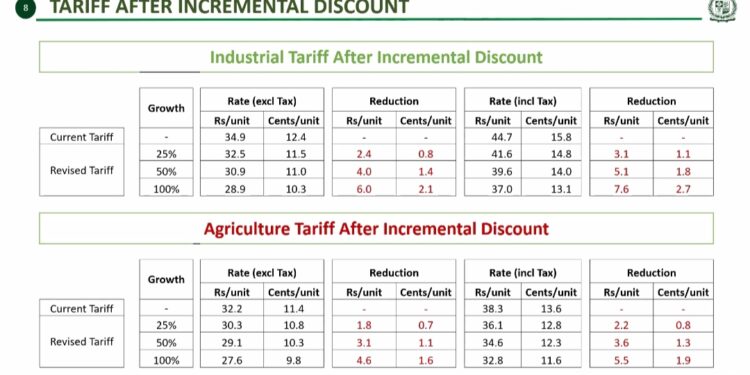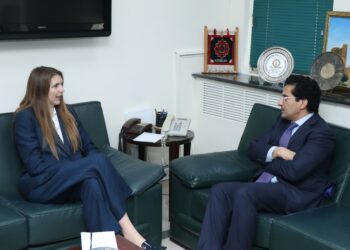ISLAMABAD : The country’s industry on Tuesday urged the National Electric Power Regulatory Authority (NEPRA) to resist pressure from the Power Division and take its time to finalize the three-year incremental electricity consumption package, warning that the proposed scheme could cripple industrial growth and lead to factory closures over the next three years.
During a marathon public hearing chaired by NEPRA Chairman Waseem Mukhtar and attended by Members Rafique Ahmad Shaikh, Maqsood Anwar Khan, and Amina Ahmed, the industry voiced strong opposition to the Power Division’s new incremental tariff of Rs 22.98 per kWh for industrial and agricultural consumers, linked to a projected 25 percent growth in consumption.
The Power Division team, led by Additional Secretary Mehfooz Bhatti, defended the proposal, calling it “subsidy-neutral” and essential for grid stability. However, industry leaders, including representatives from the All Pakistan Textile Mills Association (APTMA), Federation of Pakistan Chambers of Commerce and Industry (FPCCI), and Karachi Chamber of Commerce and Industry (KCCI), rejected the plan, terming it “discriminatory, unrealistic, and finalized without consultation.”
APTMA and FPCCI argued that the government failed to consult stakeholders before drafting the package. “None of the people involved in policy drafting understand the operational and financial realities of factories,” said Rehan Jawed of FPCCI. “Industrial policy should be inclusive, not selective.”
Jawed emphasized the need for a unified and transparent framework applicable to all categories—grid, captive, and hybrid users—based on fair load factor benchmarks. “Equal treatment for all will promote confidence, stability, and investment in the industrial sector,” he added.
Industry leaders expressed alarm over the 60 percent captive load factor, which they said effectively excludes most of the textile sector — accounting for nearly 60 percent of total exports — from any benefit. They recalled that NEPRA itself had previously deemed a 50 percent threshold too high, and said the latest increase contradicts on-ground industrial load averages of 40–45 percent.
They also pointed out the lack of a legal definition of ‘captive power’, referencing court rulings that prohibit discriminatory tariffs between captive and non-captive users. “This package creates divisions instead of unifying the industrial base,” said one representative.
Industry representatives demanded a regionally competitive fixed tariff of 9 cents/kWh, noting that exports and consumption had only grown during previous fixed-rate regimes. “High tariffs and cross-subsidies have already pushed industries to the brink. If this package is implemented in its current form, it will only accelerate closures,” warned Tanveer Barry of KCCI, adding that the 25% growth assumption was “completely unrealistic” amid high power and gas prices.
During the session, NEPRA Member (Technical) Rafique Ahmad Shaikh questioned why the Power Division had not consulted industry beforehand. “Wouldn’t it have been better to find a middle ground between government and industry before cabinet approval?” he asked.
While Mehfooz Bhatti acknowledged that tariffs were high and industries were under stress, he maintained that the government had to balance “grid stability and fiscal realities” and could not design tailor-made packages for specific sectors.
As confusion surfaced over how NEPRA would review deviations in consumption growth and their impact on consumers, industry representatives made a final appeal to the regulator:
“We urge NEPRA not to come under pressure and to take its time to finalize the package so that consumers and industries do not suffer for the next three years.”
Islamabad, London explore enhanced cooperation in energy and mineral sector
ISLAMABAD: Federal Minister for Petroleum, Ali Pervaiz Malik, held a meeting with the British High Commissioner to Pakistan, Jane Marriott,...
Read more














